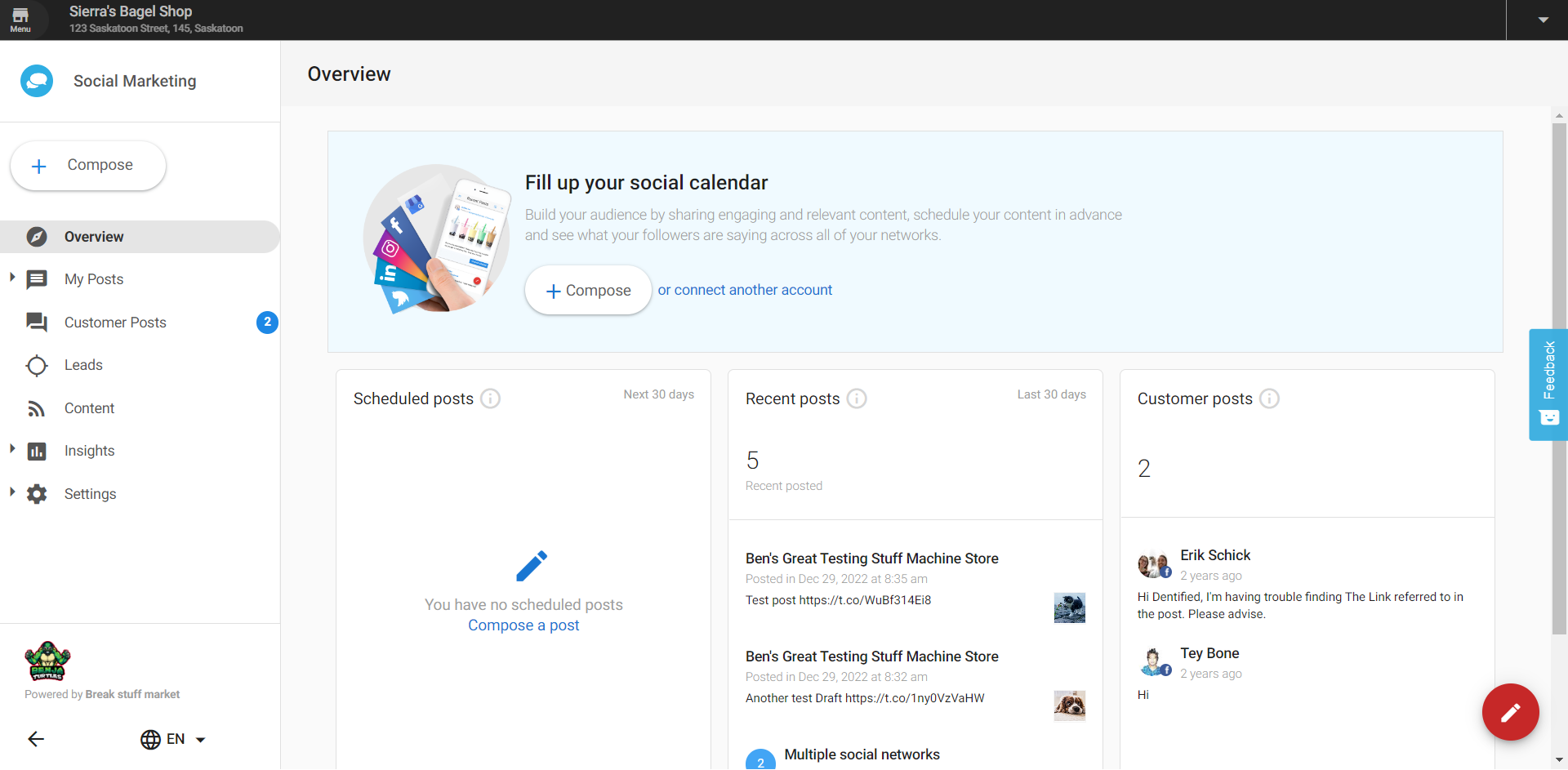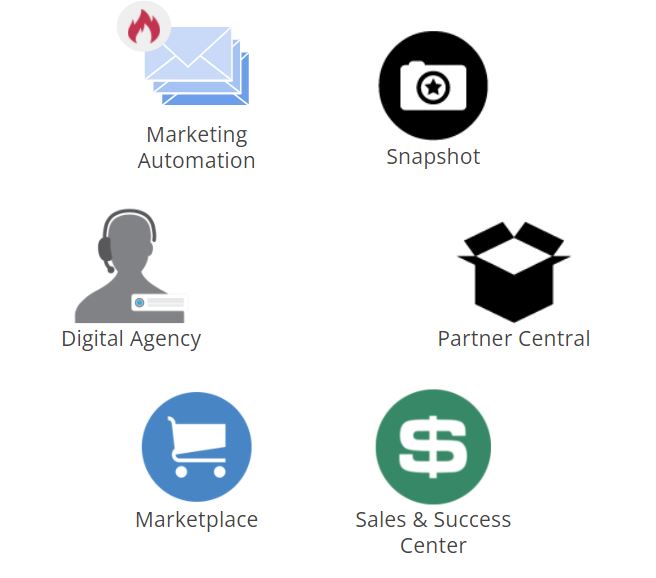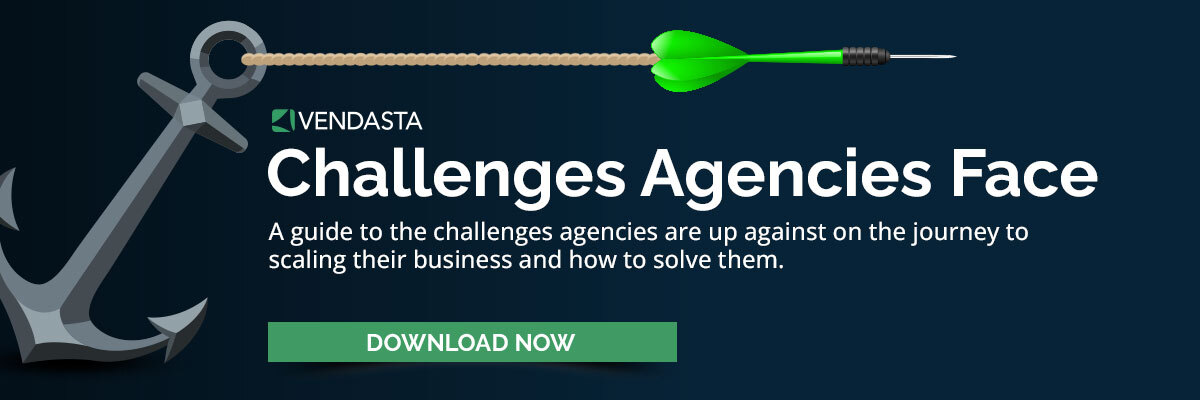The Beginner’s Guide to Becoming a Full-Service Marketing Agency
While digital marketing agencies exist across a wide range, a full-service agency can offer the best opportunities for scaling your business and increasing revenues. Considering all the work that goes into a full-service marketing agency can be daunting for beginners, but taking it one step at a time as you build your agency can help.
Learn how automations make you efficient, enhance your productivity, and help you win with local business. Download “Agency Marketing through Automation” today.
If you're on the road to starting a digital marketing company, the first step is determining what services you want to offer. Learn more about full-service agencies below to find out if this is the right ultimate goal for you—and then read some dos and don'ts to help you succeed in launching a full-service marketing agency.
What is a full-service marketing agency?
Your agency startup is a full-service agency if it provides comprehensive services that meet all the marketing needs of its clients. Typically, this means supporting online marketing efforts as well as offline efforts, promotional strategies, and advertising campaigns.
Agency ownership often starts with a boutique marketing agency that grows into a full-service agency. This is because you typically need a larger staff and more resources to support comprehensive marketing efforts. For example, you may need to staff departments that include creative, strategy, media, and digital. Or, you might need experts in SEO, content marketing, video creation and editing, graphic design, and other skills that add up to holistic marketing.
In some cases, smaller agencies work with larger partners or engage in white labeling to enhance their offerings and support the full spectrum of marketing needs for clients.
What do full-service agencies do?
The services offered by full-service agencies vary, but they tend to cover the critical components of a marketing strategy. Some services you typically need to offer to be considered a full-service agency include:
- Branding. These services support clients in developing a brand identity and building awareness about their business or products. Branding services can range from logo creation to marketing that helps create community, attract ambassadors, and build loyalty.
- Advertising. Digital ad services include creating and managing campaigns. Agencies typically provide keyword and other research, ad copy, and ongoing management of automatic and manual bidding processes. Full-service agencies may also offer ad services related to radio, television, and print media.
- Public relations. You may need a team to handle day-to-day PR, such as influencer marketing and reputation management, as well as media relations during crisis management situations.
- Market research. Analytic teams conduct in-depth market research, including competitive analysis, to create actionable insights that inform marketing strategies.
- Digital marketing. Digital marketing includes search engine optimization, content marketing, email marketing, and other inbound tactics to help connect with target audiences online. Agencies that offer digital marketing services may create content, design websites, and handle data analytics.
- Social media management. A full-service marketing agency typically offers some type of social media management package. At a minimum, you must be able to accommodate Instagram, Facebook, and LinkedIn marketing efforts.
How does a full-service agency differ from other marketing agencies?
The main difference between a full-service agency and a boutique agency is that the former provides a holistic approach to marketing while the latter focuses on a specific type of marketing.
For example, a PR agency provides public relations services but is unlikely to help clients with digital ad campaigns or create product descriptions to help sell goods. A social media marketing agency might manage ads and content on social platforms but not create content for blog posts and landing pages. In contrast, a full-service agency helps clients with all of these things and other marketing needs via integrated approaches and holistic strategies.
Benefits of being a full-service agency
Launching or building an agency isn't without challenges. You may need more resources, and day-to-day management can be more complex. However, there are numerous benefits of being a full-service agency.
Increased efficiency and streamlined communication
Your client's marketing needs don't change simply because you don't support them all. Boutique agencies that specialize in a specific service, such as social media marketing or website development, often end up working with other vendors in an effort to support a client. Working constantly with outside partners can create communication and process burdens.
However, when you offer comprehensive services, you can meet client needs in-house. This can create efficiency wins as you have complete control over communication and other processes.

Enhanced brand consistency and cohesive messaging
As a full-service marketing agency, you can provide a cohesive marketing package for clients that ensures consistent messaging across all types of content and platforms. This is true even if you work with freelancers or vendors to scale up because all the work flows through your in-house teams before it's delivered to the clients.
Ability to provide comprehensive solutions tailored to client needs
Knowing how to find clients isn't enough to ensure success as a marketing agency. You must also know how to keep clients and maximize customer lifetime values. A full-service agency is better poised to do this than a boutique agency because clients don't need to look elsewhere for any services. You offer everything they need, so there’s less chance that another agency can step in, wow them, and steal them away.
Cost savings and profit enhancement
While you might need more resources and staff to run a full-service agency, you do get some financial benefit from the economies of scale involved.
For instance, when you invest in agency skills, you may be able to double dip. Someone who can write copy for social media posts can probably write copy for ad campaigns, and teams that can create blog posts can also create landing pages, email content, and product descriptions. You might be able to afford a graphic designer, and that subject-matter expert can assist web development, social media, and branding teams.
All of this double dipping enhances profits. You only pay one salary for the graphic designer, for example, but they can contribute to a variety of services that drive revenue for your agency.
Potential for long-term partnerships
A full-service agency can support client needs even as the customer business grows or changes. With a full spectrum of marketing services backed by technology resources and automation, you can serve clients of all sizes and types, including small and local businesses, ecommerce companies, and corporations. This results in the potential for long-term partnerships, which enhances customer lifetime value.
Image source: Vendasta
Dos and don'ts of operating a full-service agency
When launching a full-service marketing agency—or growing your existing niche agency into one—following some best practices can help you succeed. Check out the dos and don’ts below to help you get started.
| Do | Don’t |
| Foster collaboration between departments. When your teams work seamlessly together, you can deliver agile services that best meet the needs of your clients. | Fall into silos as you grow. It might be tempting to structure departments so they operate independently of each other, but avoid silo effects that limit communication and partnerships between your teams. |
| Remain up-to-date with industry trends. The digital marketing landscape changes quickly, and you can only position yourself as an expert service provider if you keep up with new trends. | Overpromise and underdeliver. Be realistic about what your agency can do and within what timelines. When possible, underpromise and overdeliver so you exceed client expectations. |
| Invest in talent and technology. Today’s marketing agencies must balance creative human input with the efficiency of automations and AI. Ensure you’re building both human capital and technology resources as you grow. | Neglect specialization. Even a full-service agency can specialize, developing a reputation as an expert in a certain niche. For example, you might build a service line that specializes in marketing in the medical industry, where clients face many regulatory challenges that aren’t relevant in other industries. Consider the best niches for marketing agencies as you develop specializations. |
| Maintain strong client relationships. Provide excellent customer service to enhance client partnerships and maximize client lifetime values. | Ignore changing marketing dynamics. Your full-service agency must be agile enough to pivot with changing marketing dynamics. One example is in search engine optimization, where a major Google algorithm update can disrupt SEO efforts and require quick evolution on the part of agencies. |
| Pay attention to your brand reputation. Utilize social listening and strong public relations to manage your brand reputation online to minimize disruptions to your sales pipeline in the future. | Slack off on lead generation once you’re established. Maintain lead generation strategies to ensure your sales funnel is intact at all times to support the growth of your business. |
How to incorporate white labeling
Whether you want to start an agency with no experience or grow your boutique marketing consultancy business into a full-service agency, white labeling can help.
White labeling lets you bring resources and expertise into your processes without undergoing the time and expense needed to hire new staff. From your client’s perspective, the resources you leverage via white labeling appear under your brand and are no different from your in-house resources.
By incorporating white-label solutions from expert partners like Vendasta, you can create full-service agency solutions quickly to grow your business.



